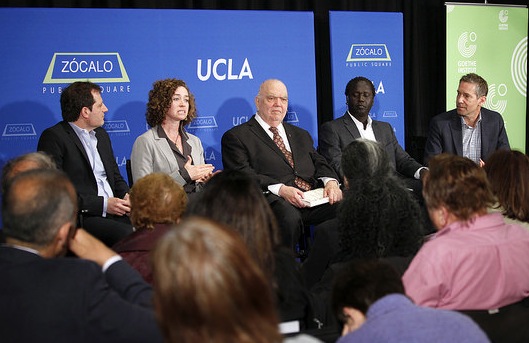When It Comes to Stopping Genocide, There’s a Will But Not a Way
We Are More Committed to Ending Mass Atrocities Than Ever Before—We Just Don’t Know How
What does genocide mean? What are its causes? And what kind of actions can be taken—in the U.S. and elsewhere—to stem this horrifying, ongoing global problem? Kal Raustiala, director of the UCLA Burkle Center for International Relations, opened a discussion about genocide, and how the world reacts to it, by posing these questions in front of a full house at the Goethe-Institut Los Angeles, at a “Thinking L.A.” event co-presented by UCLA.
UCLA historian Richard G. Hovannisian, whose parents survived the genocide of Armenians that started almost exactly 100 years …








